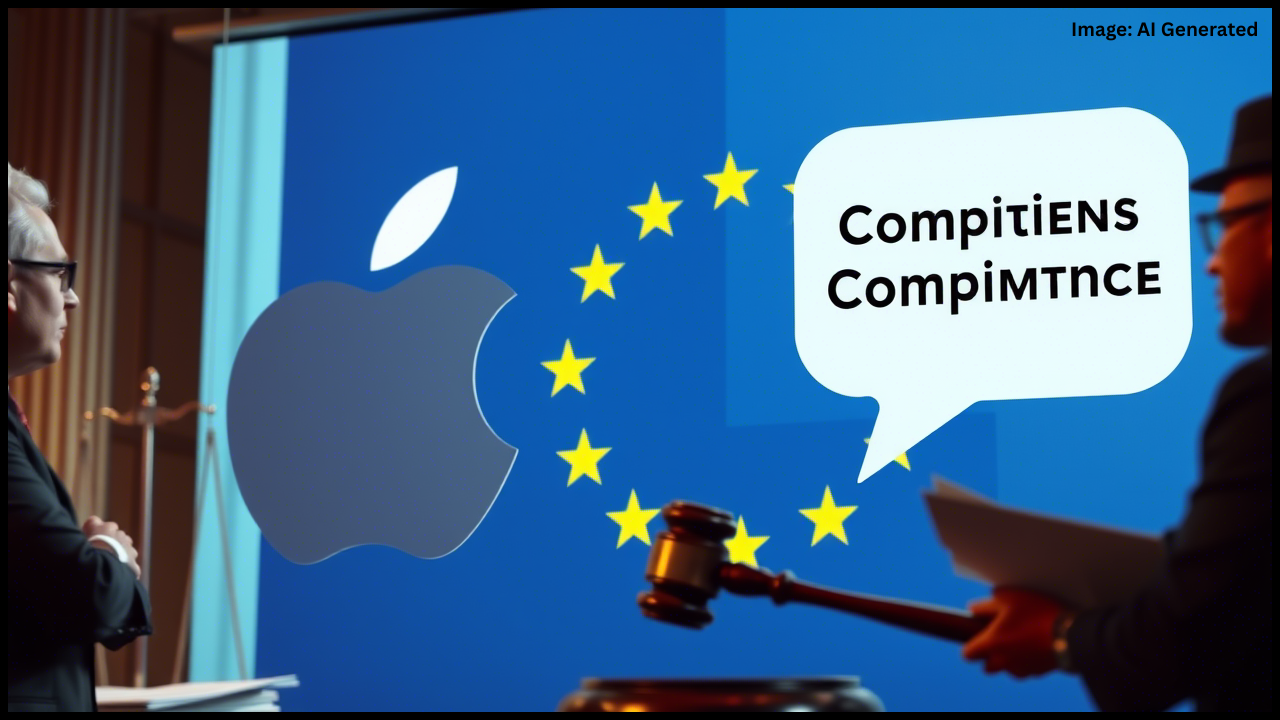Apple has recently taken a bold legal step against the European Union’s newest regulatory demands. The tech giant is challenging the EU’s Digital Markets Act (DMA), which requires Apple to make its iOS devices more compatible with rival companies’ products. Apple argues that these interoperability rules are “deeply flawed,” raising concerns about user privacy, security, and the potential to stifle innovation. This legal battle has wide-ranging implications not only for Apple but for how tech companies will operate within the EU in the coming years.
In this article, we’ll explore the background of this dispute, explain the EU’s Digital Markets Act in detail, break down Apple’s objections, and examine what this means for consumers, developers, and the tech industry at large. Whether you’re a tech professional, a business stakeholder, or simply curious about how digital regulations shape your gadgets, this guide will clarify the key points and provide valuable insights.
Quick Highlights
- Apple is legally appealing the EU’s interoperability order under the Digital Markets Act (DMA).
- The EU mandates Apple to enable third-party apps and devices greater access to iOS features like notifications and faster data transfers.
- Apple contends the regulations jeopardize privacy, security, and user experience, while unfairly targeting Apple alone.
- The European Commission fined Apple €500 million for anti-steering violations relating to App Store rules.
- This case could set precedent for how digital market regulations affect global tech giants in Europe and beyond.
Understanding the Digital Markets Act (DMA)
What Is the DMA?
The Digital Markets Act (DMA) is a landmark regulatory framework enacted by the European Union designed to ensure fair competition and reduce anti-competitive practices by major online platforms. The DMA specifically targets what it calls “gatekeepers” — large tech companies that control essential digital ecosystems, such as Apple, Google, and Meta.
The goal of the DMA is to open up these platforms so users and developers have more freedom and choice. It aims to prevent gatekeepers from abusing their dominant market position to block rivals or lock users into their own ecosystems, often referred to as “walled gardens.”
Why Was the DMA Introduced?
The DMA is part of the EU’s broader strategy to regulate the digital economy, address monopolistic practices, and protect consumer rights. Tech giants like Apple have built powerful ecosystems that many users rely on daily, but this dominance can limit competition and innovation. The DMA seeks to level the playing field by forcing these companies to be more transparent and interoperable.
Key DMA Requirements Relevant to Apple
- Interoperability: Apple must make iOS devices work better with third-party apps and hardware. For example, notifications from non-Apple devices should be able to appear on iPhones, and third-party wearables should pair easily with iOS.
- Data Portability and Faster Transfers: Devices and apps should be able to exchange data more quickly and seamlessly, allowing users to move their data between platforms with ease.
- No Anti-Steering Rules: Apple must allow developers to inform users about alternative purchase options outside the App Store, promoting pricing transparency and competition.
These rules came into effect in March 2025 and represent a significant regulatory milestone in digital market oversight.
Why Is Apple Challenging the EU?
Apple’s Position on the DMA
Apple has publicly called the DMA’s interoperability demands “deeply flawed.” The company cites several key concerns:
- User Privacy and Security: Apple stresses that opening up its tightly controlled iOS environment could expose users to security vulnerabilities or privacy risks. Apple’s ecosystem is designed with strict privacy protections, and loosening control might weaken these safeguards. Apple argues that third-party access to core system functions could lead to hacking risks or unauthorized data sharing.
- Innovation Impact: Apple argues that forcing it to share certain iOS features with third parties will slow down innovation. The company points out that its engineers are currently working on compliance but warns of “significant costs” and technical challenges. Apple believes that maintaining a secure and integrated system is critical to delivering new features and services effectively.
- Unfair Targeting: Apple feels the regulations unfairly single out its platform, while other tech giants may face different or less stringent rules. The company suggests the DMA could create an uneven playing field by imposing burdensome requirements uniquely on Apple.
- User Experience Concerns: Apple is concerned that interoperability mandates could degrade the seamless experience iPhone users expect. For example, forced compatibility with rival devices may cause glitches, slower performance, or inconsistent behaviors across apps.
The Fine for Anti-Steering Practices
In addition to the interoperability dispute, the European Commission fined Apple €500 million for violating the DMA’s anti-steering provisions. These provisions require Apple to stop blocking app developers from informing users about alternative, often cheaper, ways to purchase apps or services outside the App Store.
The Commission found that Apple’s App Store policies unfairly prevented developers from openly communicating these alternatives, limiting consumer choice and competition.
Apple has until late June 2025 to comply or face further penalties.
What Does This Mean for Users and Developers?
For Consumers
The EU’s aim is to create a more open digital marketplace where consumers have greater freedom and choice. If Apple complies, users might:
- Use non-Apple wearables and devices more easily with their iPhones.
- Receive notifications from a wider range of apps and devices.
- Benefit from faster data syncing and transfers across devices.
- Have more purchasing options outside of the App Store, potentially lowering costs.
- Experience improved transparency about app pricing and services.
However, Apple warns that forced interoperability might introduce security risks and reduce the fluidity of its tightly integrated device ecosystem.
For Developers and Tech Companies
- More Opportunities: Developers could have access to iOS features previously restricted, enabling new apps and devices to compete on Apple’s platform.
- Increased Transparency: Developers will be able to inform users about alternative payment methods and purchase options, enhancing competition.
- Technical and Compliance Challenges: Complying with the DMA’s complex interoperability requirements involves technical work, resources, and potential security trade-offs.
Apple Takes Legal Stand Against EU’s: Step-by-Step Guide to Apple’s Compliance Process
- Assessment Phase: Apple’s engineering teams analyze the EU’s DMA requirements to understand the technical scope and challenges.
- Development & Testing: Apple works on enabling interoperability features such as notification sharing and faster data transfers, while maintaining high security standards.
- Legal Review: Apple evaluates compliance against EU privacy laws and its own security protocols to avoid legal or safety breaches.
- Implementation: The company will gradually roll out software updates and hardware compatibility features to iOS devices sold in Europe.
- Monitoring & Feedback: Apple will monitor system performance and user feedback to identify and fix potential issues after deployment.
- Regulatory Reporting: Apple must regularly report its progress and compliance status to the European Commission.
- Penalties & Appeals: Apple has filed legal challenges against aspects of the DMA, which may delay full compliance and influence future regulatory practices.
Overall Summary
Apple’s legal stand against the EU’s Digital Markets Act represents a critical clash between regulatory authorities seeking to foster competition and a tech giant protecting its ecosystem. While the DMA aims to empower users and developers by promoting interoperability and transparency, Apple warns of risks to privacy, security, and innovation.
This unfolding case is a must-watch for anyone interested in the future of digital markets, user rights, and the evolving balance of power between regulators and global tech firms. Staying informed will help users, developers, and professionals navigate the shifting landscape with confidence.
Read More
Microsoft’s New Notepad Features Are a Game Changer for Writers and Coders
FAQs on Apple Takes Legal Stand Against EU’s
1. What is the Digital Markets Act (DMA)?
The DMA is a European Union law designed to regulate big tech companies and ensure fair competition in the digital marketplace. It targets “gatekeepers” like Apple and Google to prevent anti-competitive behavior and promote interoperability.
2. Why is Apple opposing the EU’s interoperability rules?
Apple believes the interoperability rules risk compromising user privacy, security, and innovation. They argue these rules unfairly single out Apple and could degrade the user experience.
3. How much is the fine Apple received from the EU?
Apple was fined €500 million for breaching anti-steering rules that prevent developers from informing users about alternative purchasing options outside the App Store.
4. How will this affect Apple users?
If Apple complies, users could enjoy better device compatibility, faster data transfers, and more payment choices. However, there might be concerns about security and user experience changes.
5. What is the timeline for Apple’s compliance?
Apple has until late June 2025 to comply with the EU order or face additional fines. The legal challenge Apple launched could delay full implementation for several years.
6. Could this legal case affect other tech companies?
Yes, the outcome of Apple’s legal challenge could set important legal precedents affecting how other major tech companies comply with the DMA and similar regulations worldwide.

